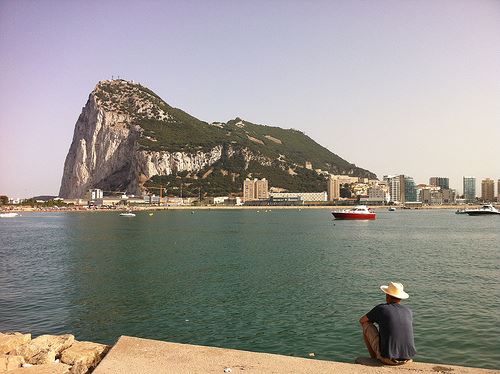Translated by CostaLuz Lawyers from El País, 22-04-2013)
Lisbeth Salander, the iconoclast leading role of the popular saga Millenium written by Stieg Larsson, travels to Gibraltar in the last book from the trilogy in order to open a secret bank account in which to hide 2.400.000.000€ which he had theft from a corrupt organization. Until a short time ago, Gibraltar was considered one of the tax havens for the main international institutions. In the last years the authorities in the Rock have signed agreements to exchange information with almost twenty countries and have introduced changes in its fiscal system in order to go out from this blacklist. But Spain still considers it a tax haven through which every year hundreds of millions of euros escape to the fiscal control and are evaded.
Gibraltar works, in fact, as one of the territories named off-shore (word used in the financial argot for the fiscal limbos) where important businessmen from Costa del Sol send their businesses and part of their patrimony in order to escape from the Treasury. So, Treasury is making narrower the siege to this territory. It has created a working group with the delegations of Andalusia, Ceuta and Melilla in order to analyze the taxation of the transactions done in the Rock, the formation of the legal entities and the financial movement linked to these transactions. The Inland Revenue estimates that hundreds of millions are evaded every year by transactions connected with the Rock. We have no official figures, but in Gibraltar we may find almost as many companies as population.
The working group created by the Treasury tries to clear up the way of creation of the societies established in Gibraltar, the movement of capitals from Spain to the Rock, the participation of offices and entities in both sides of the Fence or the proceeding of the formation of societies in Spain participated by businessmen with fictitious residence in Gibraltar. The Treasury has detected that these entities are created mainly in order to maintain the opacity of the holders of properties and real estates in Spain, and to facilitate their transfer without declaring them to the Inland Revenue.
“Gibraltar was a place that was curiously isolated from the rest of the world, a city composed of a rock, a little more than two squared kilometers of urban area and an airport that began and finished at the sea”. Larsson described the Rock this way. This small territory in which Spain has some aspirations doesn´t go too badly. It has a gross domestic product of 1.050.000.000 pounds (1.230.000.000€) and an annual sustained growth between 5% and 10% of GDP.
Both the gibraltarian taxation system and the facility for opening businesses and escape from the Treasury are uncomfortable for the spanish authorities. Last year they denounced it in the European Comission: they complained because of the fiscal regime because they consider it is incompatible with the European taxation system. This system, named Income Gibraltar Act 2010, reduced the Societies Tax from 22% to 10%. Also, in Gibraltar you only pay for the benefits got in the Rock, those ones got outside are exempt. This fiscal regime converted the Rock in a pole of attraction for the businesses in the area that escape from Spain with a tax rate of 30%. So the number of businesses that carry out their activities in Spain but pay in the colony increases.
In Gibraltar there are almost as many citizens as societies, 30.000. The group created by the Treasury tries to reveal the fiduciary structures which assets are formed by real estates situated in Spain. These frameworks are constituted by “limited” societies addressed in Gibraltar but holders of real estates and patrimony in Spain. There are 1.100 houses in this situation in the Costa del Sol area, according to official data. Another kind of structure is formed by Spanish societies but whose shareholders and administrators are situated in Gibraltar. In this situation there are 370 businesses. In both cases these structures escape from paying the tax transaction owing to the opacity of these frameworks
Fabian Picardo, main minister in the Rock, pointed out to this newspaper some weeks ago: “To be a tax haven has finished. It´s an old pattern which has no place in the modern Europe, even in the modern world. But we have to pay attention to what it is happening in some places which are not tax havens, like societies for nonresidents in the UK or Sicav in Spain”.
Another concern for the Spanish authorities is about the cash movements through the Fence of Gibraltar. There are few declarations about cash flows; however the Treasury knows that there are millionaire transactions. From the 2.788 transactions of traffic of foreign currencies with Gibraltar between 2007 and 2011 only eight are registered in the Rock. In total, transactions of 1.571 millions have been done, and from those ones only 872.000€ are ordered from Gibraltar. This reveals that the flow goes from Spain to Gibraltar but not the other way round.
--
.jpg)

"Gibraltar", by Spanianytt, at flickr.com